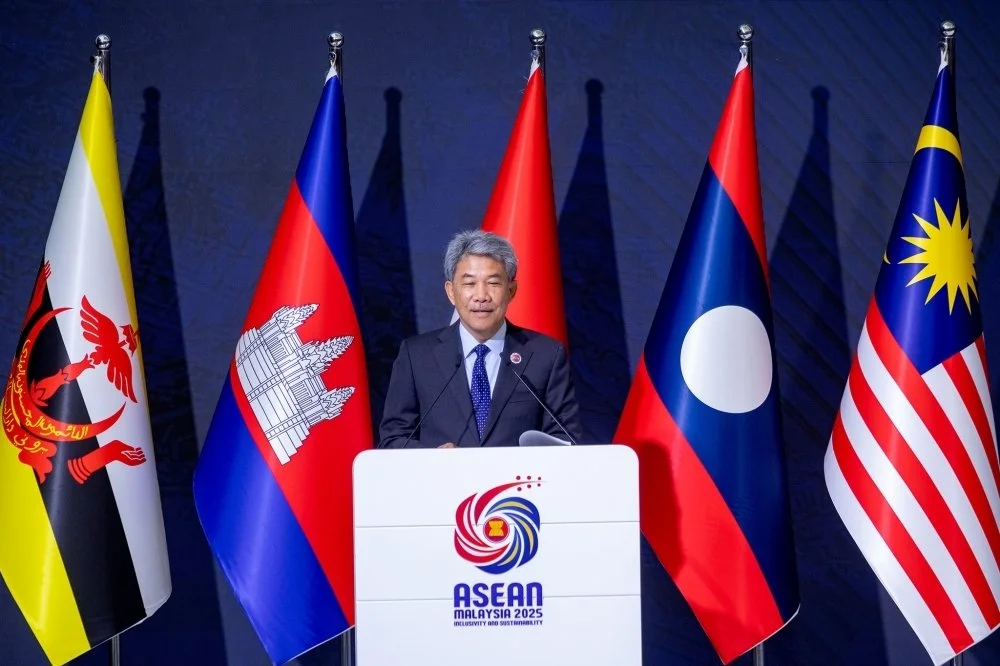ASEAN Leads Response to the Threat of Global Economic Disorder
Foreign Minister Datuk Seri Mohamad Hasan speaks during the ceremony marking Timor-Leste’s accession to the Asean Charter and SEANWFZ Treaty ahead of the 47th Asean Summit at the Kuala Lumpur Convention Centre | Picture by Firdaus Latif
In an article for East Asia Forum, Shiro Armstrong discusses Trump’s “Liberation Day” tariffs and ASEAN’s response, where the latter avoided retaliation, which would worsen economic consequences, and instead communicated a coordinated, non-retaliatory response to the tariffs.
Malaysia and ASEAN’s leadership in response to rising protectionism and the threat to ASEAN and global prosperity and security has so far been a masterclass, punctuated by the convening of a Leaders’ Meeting for the Regional Comprehensive Economic Partnership (RCEP) on 27 October 2025.
But there are risks, like the Agreement on Reciprocal Tariffs that US President Donald Trump has pressured Malaysia to sign, which will undermine cooperation and the most favoured nation treatment that is the fundamental basis for ASEAN and the rules-based economic order.
Trump’s 2 April 2025 ‘Liberation Day’ tariffs disproportionately punish ASEAN members and cast a dark shadow on the global economy.
Very few countries could lead a coalition of the willing to hold the line on joining the wave of protectionist retaliation. That it was Malaysia chairing ASEAN was alphabetical luck. That ASEAN had the established relationships and institutions, alongside the clear recognition of the threat to its economic and political security, was not luck but a product of good strategy.
Many nations vowed retaliation against the ‘Liberation Day’ tariffs, threatening contagion and further pressure on the global trading system. By contrast, leaders of ASEAN’s most important economies were quick to communicate a coordinated, non-retaliatory response to the tariffs, doubling down on openness with reforms. This was despite facing extensive political pressure to ‘protect’ local industries against a flood of Chinese exports — diverted from the US market due to increased US protection.

